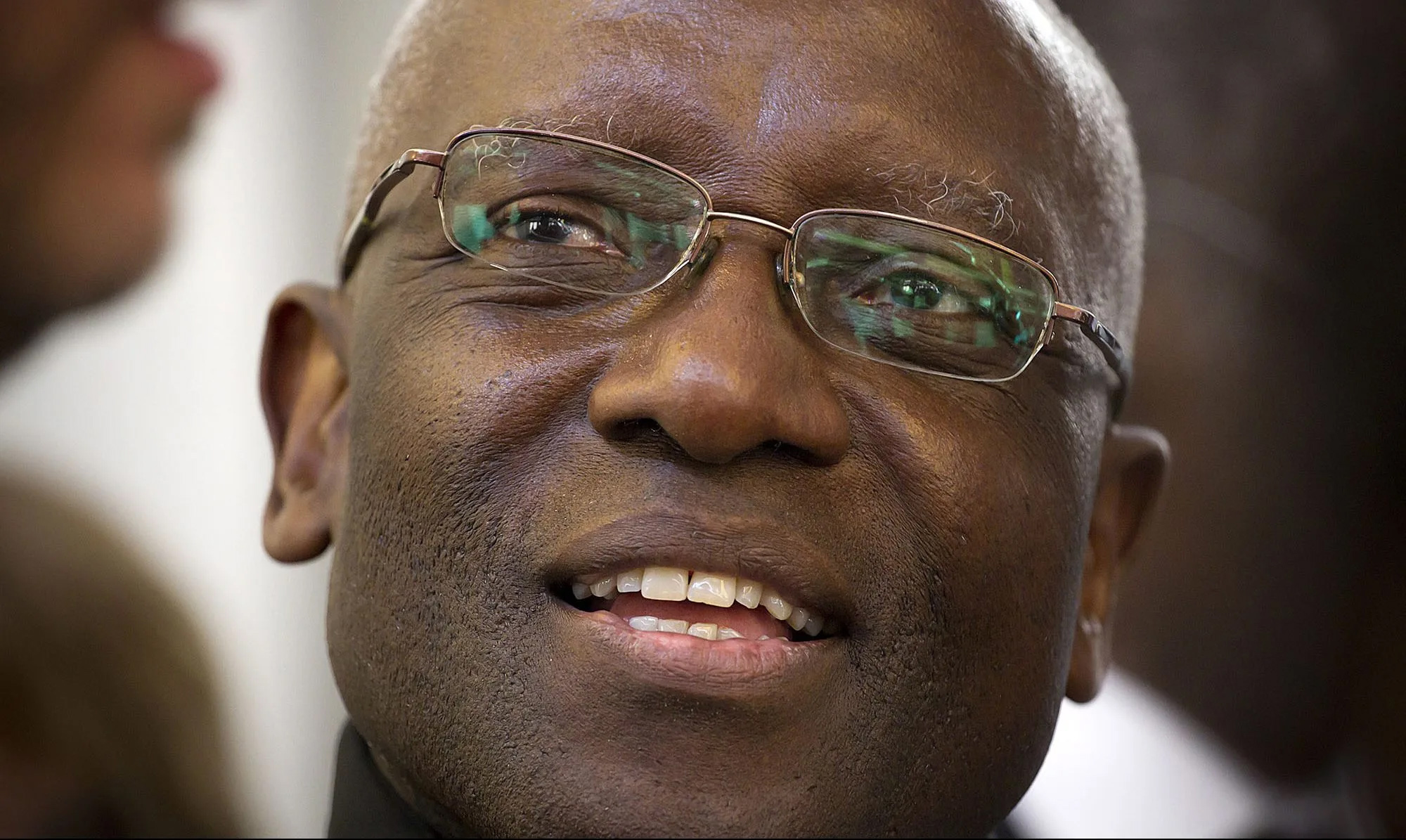The panel, chaired by retired Chief Justice Sandile Ngcobo, found that the President of the republic had a case to answer with regard to a puzzling break-in and theft of foreign currency from his game farm, Phala Phala, in February 2020.
In his application to the ConCourt on 5 December, Ramaphosa noted that “for the first time in the country’s history a sitting president faces impeachment” and it was for this reason that circumstances were exceptional.
“This application does not come easily. I have carefully considered the report and respectfully submit that the process followed by the panel and its conclusions are seriously flawed, thus making the recommendations irrational” concluded the President.
The respondents are Ngcobo, Judge Thokozile Masipa, advocate Mahlape Sello, as well as African Transformation Movement leader Vuyo Zungula and National Assembly Speaker Nosiviwe Mapisa-Nqakula. They have been given 10 days to file their responding affidavits.
Read in Daily Maverick: “President Ramaphosa takes fight to ConCourt – Panel ‘misconceived its mandate and misjudged the information’”
Grapevine evidence not enough
Ramaphosa has accused the panel of basing its conclusions and recommendations on hearsay evidence given by former State Security Agency (SSA) head Arthur Fraser, who brought the break-in to the attention of the SAPS, two years after the event.
Fraser was the national commissioner for correctional services when former president Jacob Zuma was illegally released on medical parole on 5 September 2021 while serving a 15-month sentence for contempt of court.
The Supreme Court of Appeal later found that Fraser could not “simply ignore” the recommendation of the Medical Parole Advisory Board “because he or she holds a different view”.
Read in Daily Maverick: “‘Irrational’ and ‘premature’ – SCA takes aim at Fraser, Correctional Services and says Zuma should return to jail”
The former spy boss has also been implicated in the theft of about R1-billion from the SSA through various projects and schemes, including the Principal Agent Network which was repurposed by Fraser.
Read in Daily Maverick: “Arthur Fraser: How did he get in there – report reveals dodgy backdoor vetting for spy boss”
The Section 89 panel, said the President, should have asked itself whether the evidence “was not only lawfully obtained by Fraser but also was sufficient to support its conclusions”.
 Former Chief Justice Sandile Ngcobo. (Photo: Gallo Images / The Times / Daniel Born)
Former Chief Justice Sandile Ngcobo. (Photo: Gallo Images / The Times / Daniel Born)
“There was no evidence, let alone sufficient evidence, because all the panel had was Mr Fraser’s say-so,” said Ramaphosa.
Apart from this, he added, the panel had “dabbled in conjecture and had made assumptions”.
No Uncle in the Furniture Business
This specifically with regard to the charge that “I gave permission that the cash should be stuffed inside the sofa”, when the “only evidence” was that he had given “the contrary instruction: that the money be banked”.
Ramaphosa said it was “not every day that a sitting president is under threat of impeachment. If the president is to be removed, the decisions leading up to his removal must be beyond reproach.”
The panel “had strayed beyond its focus” and there was not sufficient evidence that he had committed “serious misconduct”.
It had misconstrued “the enquiry it was supposed to conduct and in fact had determined that it was not required to conduct the inquiry”.
The panel had simply decided, he said, that there was no difference between “evidence” and “information”.
Ramaphosa said the panel had failed to test Fraser’s evidence for admissibility in two crucial respects: whether it had been lawfully obtained and whether it was all hearsay.
“I submit that there exists a real possibility that this information came to the possession of Mr Fraser illegally and it is unclear if any other information was known but deliberately suppressed from the same sources,” said the President.
The panel had misunderstood its mandate in “at least two respects”, in that it had interpreted “whether sufficient evidence exists” to mean “whether there is a prima facie case”.
The panel had stated that it had functioned as “a filter” and had implemented this standard when it concluded there was a prima facie case to answer.
What about bad faith?
Ramaphosa accused the panel of overlooking the fact that “serious misconduct” and a “serious violation of constitution or law”, as defined by the rules of the NA, were confined to “deliberate misconduct”.
“The panel did not inquire into bad faith at all,” he said.
If anything, the panel’s use of the prima facie framework “ended up placing a reverse onus of proof on me”.
Its task had been to determine the sufficiency of the evidence before it and not to consider “whether there are questions I should answer”.
It was irrational for the panel to focus on an absence of explanations, added Ramaphosa, since “an absence of evidence is not evidence of absence”.
In fact the panel had determined, said the President, that “anything I did not answer is prima facie true”.
Dead at dawn
Ramaphosa said that because of the consequences that flowed from the recommendations of the panel, “the country cannot afford instability in the office of the President”.
“Instability risks destabilising the country, least of all because an impeachment process impairs the continued functioning of government.”
Therefore there was “an urgency in resolving the legality of the recommendations and findings of the panel” and exceptional circumstances existed.
A president may only be removed, he said, for “intentional or malicious conduct in bad faith” and the prima facie case threshold employed by the panel “does not get out of the starting block”.
“Only deliberate misconduct can found the removal of the President.”
The panel had to prove not only that Ramaphosa had committed misconduct, but that he had done so deliberately in bad faith.
The President said that once the panel had set itself on the wrong path, it could not conduct “a rational enquiry nor could it reach a rational conclusion”.
The panel had not only failed to determine whether there was evidence to support the charges, but also interrogate whether there was lawfully obtained, admissible evidence and if so, what was its value.
Fraser’s Namibian blockbuster movie plot
There had been no explanation as to how a confidential Namibian report had found its way into Fraser’s hands or how he had obtained this.
“The panel had a duty to ensure that any evidence before it is lawfully obtained, or exclude it,” said Ramaphosa.
Visit Daily Maverick's home page for more news, analysis and investigations
The panel must have known that the Namibian report had not been obtained from the Namibian police.
“The panel placed heavy reliance on the report without testing its reliability, source or whether it formed part of other documents which were carefully excluded when the report was made available to Mr Fraser.”
Also, Fraser’s allegation that Ramaphosa’s special adviser, Bejani Chauke, had smuggled the cash into South Africa had not been supported by any documents, including travel documents, or other facts which could have been presented.
 Former State Security Agency director-general Arthur Fraser. (Photo: Gallo Images / Netwerk24 / Jaco Marais)
Former State Security Agency director-general Arthur Fraser. (Photo: Gallo Images / Netwerk24 / Jaco Marais)
“Mr Fraser alleges something from a movie; a fictitious drug-smuggling claim, a clandestine informal investigation team meeting in no-man’s land and a mysterious list of phone numbers extracted from unidentified devices.”
Also not explained by the panel was the origin of a Crime Intelligence report and how this came into Fraser’s possession, said the President.
Meanwhile, the Directorate for Priority Crime Investigation has confirmed that 68 statements have been taken with regard to the Phala Phala break-in. However, Brigadier Thandi Mbambo told Daily Maverick: “We can’t disclose any information pertaining to what the investigation has uncovered.”
Read in Daily Maverick: “Hawks secure nearly 70 statements on Ramaphosa farm theft”
The report was due to be discussed in a heated sitting on Tuesday in Parliament, but this has been postponed. DM




 Former State Security Agency director-general Arthur Fraser. (Photo: Gallo Images / Netwerk24 / Jaco Marais)
Former State Security Agency director-general Arthur Fraser. (Photo: Gallo Images / Netwerk24 / Jaco Marais) 